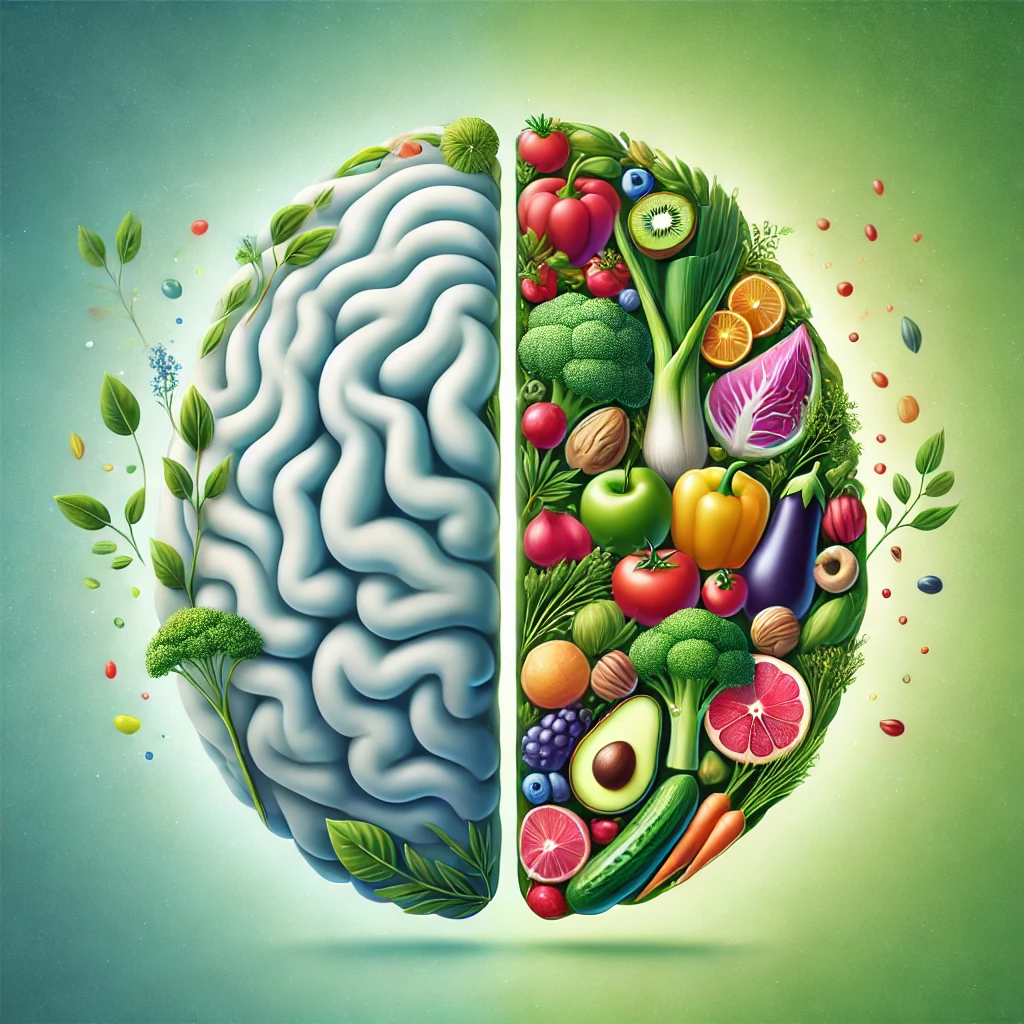We often hear that nutrition is the cornerstone of physical health, but its role in mental well-being is equally profound. Could your daily diet affect how you feel emotionally? Let’s dive into the fascinating connection between food and mental health, uncovering how dietary choices influence our minds and exploring expert advice for a balanced approach to eating.
The Gut-Brain Axis: A Two-Way Street
The gut and brain are intricately connected through the gut-brain axis. According to Dr. Felice Jacka, an expert in nutritional psychiatry, “A diet high in whole, nutrient-dense foods supports both gut and mental health, reducing the risk of depression.” Poor gut health can trigger inflammation and produce imbalances in neurotransmitters, directly impacting mood and cognition. Read the full study in Frontiers in Psychiatry.
How Diet Impacts Mental Health

- Nutrient Deficiencies: Lack of essential nutrients like omega-3 fatty acids, B vitamins, and magnesium can exacerbate mental health conditions.
- Sugar and Processed Foods: Diets high in sugar and processed foods may lead to mood swings and anxiety. Studies reveal a correlation between high sugar intake and increased risk of depression. Explore the evidence in this study from The American Journal of Clinical Nutrition.
- Antioxidants and Brain Health: Antioxidants in fruits and vegetables combat oxidative stress, supporting cognitive function and emotional balance. Read about antioxidants and mental health in this NIH article.
“Your brain needs specific nutrients to produce mood-regulating chemicals like serotonin,” explains nutritionist Sarah Green. Learn more about nutrient deficiencies and mental health from Harvard Health Publishing.
Expert Tips for Mindful Eating
- Include Healthy Fats: Incorporate sources like salmon, avocado, and nuts for omega-3s.
- Eat the Rainbow: Ensure a variety of fruits and vegetables to cover all nutrient bases.
- Limit Processed Foods: Focus on whole, minimally processed options.
- Stay Hydrated: Dehydration can mimic symptoms of anxiety.
Find practical recipes for mental well-being at Mental Health Foundation.
Conclusion
The interplay between nutrition and mental health is undeniable. While food alone isn’t a cure-all, a balanced diet rich in whole foods can be a powerful tool for emotional resilience.
As Dr. Jacka concludes, “Eating well is an investment in both your physical and mental future.”
Further Reading
- The Role of Probiotics in Mental Health
- Mediterranean Diet for Depression: What the Science Says
- Mindful Eating Practices to Reduce Stress

